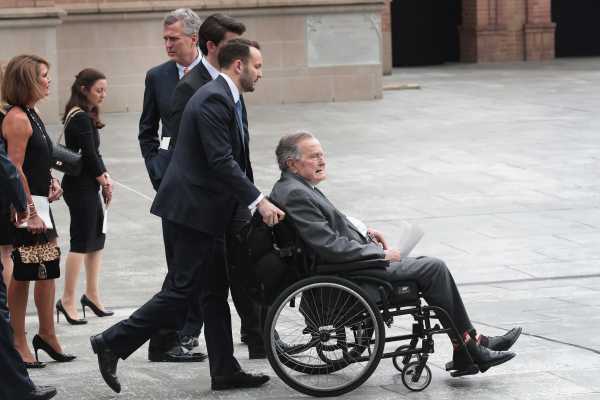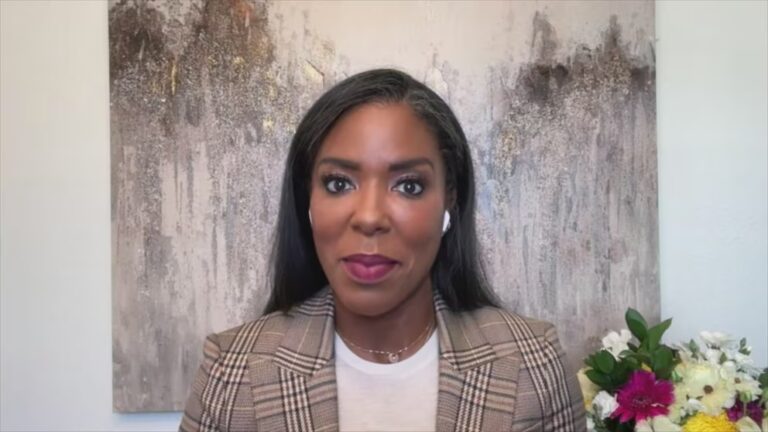
George H.W. Bush was admitted to a hospital Sunday for a blood infection, and the 93-year-old former president is now in intensive care. The timing is unsettling: It happened the day after the funeral of his wife, former first lady Barbara Bush, who died at 92 of chronic obstructive pulmonary disease and congestive heart failure.
But could the first event really have caused the other?
It’s long been known that widowhood can increase the risk of hospitalization and dying. In one nationally representative study of the “widowhood effect,” researchers found the death of a wife was linked with an 18 percent increase in mortality for men, and the death of a husband was linked with a 16 percent boost in mortality for women.
The reasons for this are complicated and still mysterious. There is a condition called “broken heart syndrome,” also known as stress or Takotsubo cardiomyopathy. Yes, you can literally die from a broken heart.
In these cases, taxing events — even joyous ones — cause stress hormones to surge in a way that can lead to an abnormal heart contraction. “This can cause chest pain in the acute setting and lead to heart failure in both the short and long term,” explained Julie Clary, chief cardiology fellow at the Krannert Institute of Cardiology at Indiana University.
Other scientific research has repeatedly shown that our health is incredibly fragile after we’ve endured an emotional upheaval, especially the death of a loved one. Losing a loved one can mean losing the routines we depend on for stable health.
But not all causes of death affect widows equally, and different groups seem to be disproportionately affected by the phenomenon. As scientists have tried to tease out these associations, they’ve learned that the widowhood effect is a lot more complicated than they originally thought.
The death of a spouse can hurt health. But the phenomenon is not universal.
Yale University professor Nicholas Christakis had a great Twitter thread on the nuances of the science:
In one of his papers, published in 2008 in the American Journal of Public Health, he and his co-authors wrote that the way a spouse dies can change the surviving partner’s mortality risk. Interestingly, the highest risk of death for widowed men is a wife who dies from chronic obstructive pulmonary disease, or COPD — one of Barbara Bush’s causes of death. A surviving husband is also at a high risk of dying from sepsis — what H.W. Bush has been diagnosed with — after the loss of a wife.
But it’s not just death: Widows are at a higher risk of being hospitalized after losing their partners. Interestingly, losing an ex-wife isn’t as deadly as losing a current wife, and “white couples have a much higher widowhood effect than black couples, for complex reasons,” Christakis tweeted. Men are also more susceptible to the widowhood effect than women.
We can’t pretend to know what exactly is behind Bush’s poor health this week. As John Mandrola, electrophysiologist and chief cardiology correspondent for Medscape, said, “It’s important to say in the case of [Bush] that the most likely cause is probably frailty induced infection — dying of old age.” But it wouldn’t be unusual at all if the stress from his wife’s death was accelerating the process. The couple had been married for 73 years.
The bright side: Our relationships with people deeply matter for our health. They can also protect us.
If there’s an upshot to these studies, it’s this: The relationships we have with loved ones matter deeply to our health.
And strong bonds with others are associated with a great many positive things. The fortitude of social connections is a predictor of resistance to Alzheimer’s and overall mental health. Studies find people with strong social bonds tend to live longer than others. In contrast, some experts say loneliness is as bad for the heart as smoking.
Humans are social creatures; our entire psychology is built on coexisting with one another. Social relationships guide our decisions to join groups, go to war, gain status, empathize, punish, marry, and mate. Having evolved this way means we can suffer without the companionship of others — and thrive when we have it.
Sourse: vox.com






